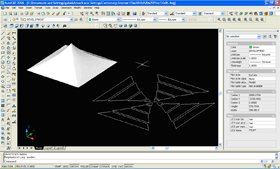New ideas and products are meticulously developed through Celina's engineering department. Utilizing software for both 2D and 3D modeling, our engineers rigorously test all designs to assess shelter support strength, tensile issues, and more prior to prototyping. The free-form design environment allows for multiple ideas and view points to integrate into the larger whole, creating multi-faceted discussions that streamline product development.
MATERIALS TESTING
Celina's Quality Assurance Lab gives our engineers the ability to do testing during product development. These tests cover both the base material attributes in addition to the tolerances of various types of connections, sealing methods, an more. Celina’s engineers work in conjunction with multiple Licensed Professional Engineers on projects that need to be certified for wind loads and snow loads. We can also perform a finite element analysis during the design process to determine
high stress areas.
THERMAL RESISTANCE ASSESSMENT CHAMBER
Used to measure the insulating properties of materials, thermal resistance testing is vital in making our products more energy efficient. The Thermal Resistance Assessment Chamber was constructed to be air-tight, thus allowing for a relatively low margin of outside contamination error. The walls, ceiling, and floor of the chamber is insulated to twice the housing standard; all six sides are coated with R-26 insulation to reduce any temperature variation due to contamination through the walls.
The process of testing a material’s thermal properties starts by setting up the material to be tested as a barrier between the two sides of the chamber. One side of the chamber is equipped with a heater, and the opposite a cooling unit. Each side of the chamber is then monitored and kept at specific temperatures, with the energy expended in maintaining the temperatures measured and documented.
Energy used to maintain temperature on the “internal tent” side of the chamber is recorded in watt hours, and is compared to the energy expenditure used on an array of different material and insulation arrangements to ultimately find the best selection of materials for our desired purpose.
Basic testing can range from 90 minutes to 8 hours, though all testing has an unlimited upper duration limit. Due to our ability to test materials with controlled thermal levels for any duration, we can not only test the initial thermal efficiency of materials and products but also how this will affect the materials in the long term, and how lengthened intervals affect the efficiency. By design, the entire time required from the conclusion of one test and test start of another (full tear down to complete set up) is one hour.
By testing many different materials and combinations, we can then conclude which materials are best suited for the project at hand.



